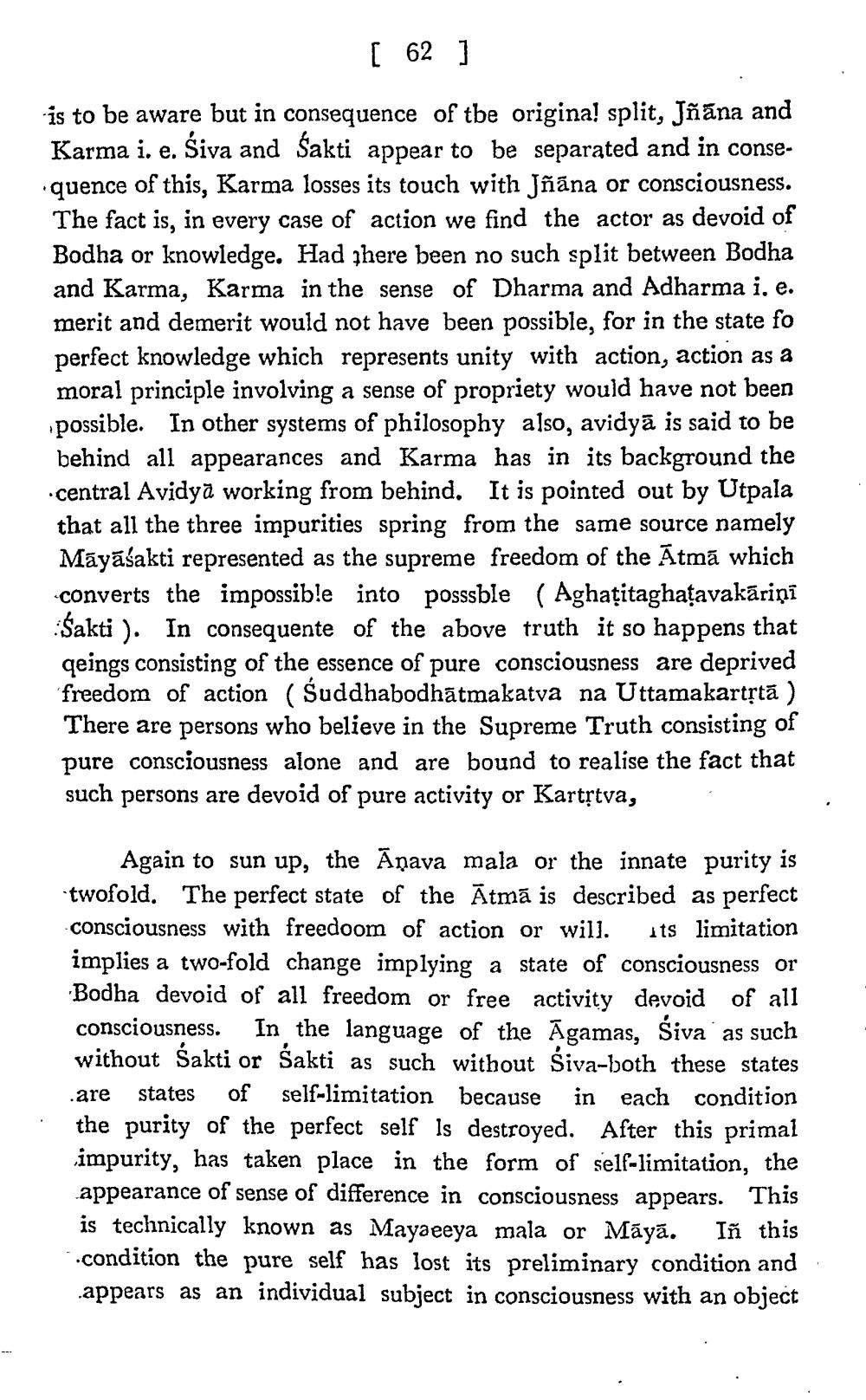________________
[ 62 ]
is to be aware but in consequence of tbe origina! split, Jñana and Karma i. e. Śiva and Sakti appear to be separated and in consequence of this, Karma losses its touch with Jñāna or consciousness. The fact is, in every case of action we find the actor as devoid of Bodha or knowledge. Had there been no such split between Bodha and Karma, Karma in the sense of Dharma and Adharma i. e. merit and demerit would not have been possible, for in the state fo perfect knowledge which represents unity with action, action as a moral principle involving a sense of propriety would have not been possible. In other systems of philosophy also, avidyā is said to be behind all appearances and Karma has in its background the central Avidyā working from behind. It is pointed out by Utpala that all the three impurities spring from the same source namely Māyāśakti represented as the supreme freedom of the Atmā which converts the impossible into posssble ( Aghatitaghatavakāriņi Sakti ). In consequente of the above truth it so happens that qeings consisting of the essence of pure consciousness are deprived freedom of action (Suddhabodhātmakatva na Uttamakarttā ) There are persons who believe in the Supreme Truth consisting of pure consciousness alone and are bound to realise the fact that such persons are devoid of pure activity or Kartstva,
Again to sun up, the Āņava mala or the innate purity is twofold. The perfect state of the Atmā is described as perfect consciousness with freedoom of action or will. its limitation implies a two-fold change implying a state of consciousness or Bodha devoid of all freedom or free activity devoid of all consciousness. In the language of the Āgamas, Siva' as such without Sakti or Sakti as such without Siva-both these states are states of self-limitation because in each condition the purity of the perfect self is destroyed. After this primal impurity, has taken place in the form of self-limitation, the appearance of sense of difference in consciousness appears. This is technically known as Mayaeeya mala or Māyā. In this .condition the pure self has lost its preliminary condition and appears as an individual subject in consciousness with an object




